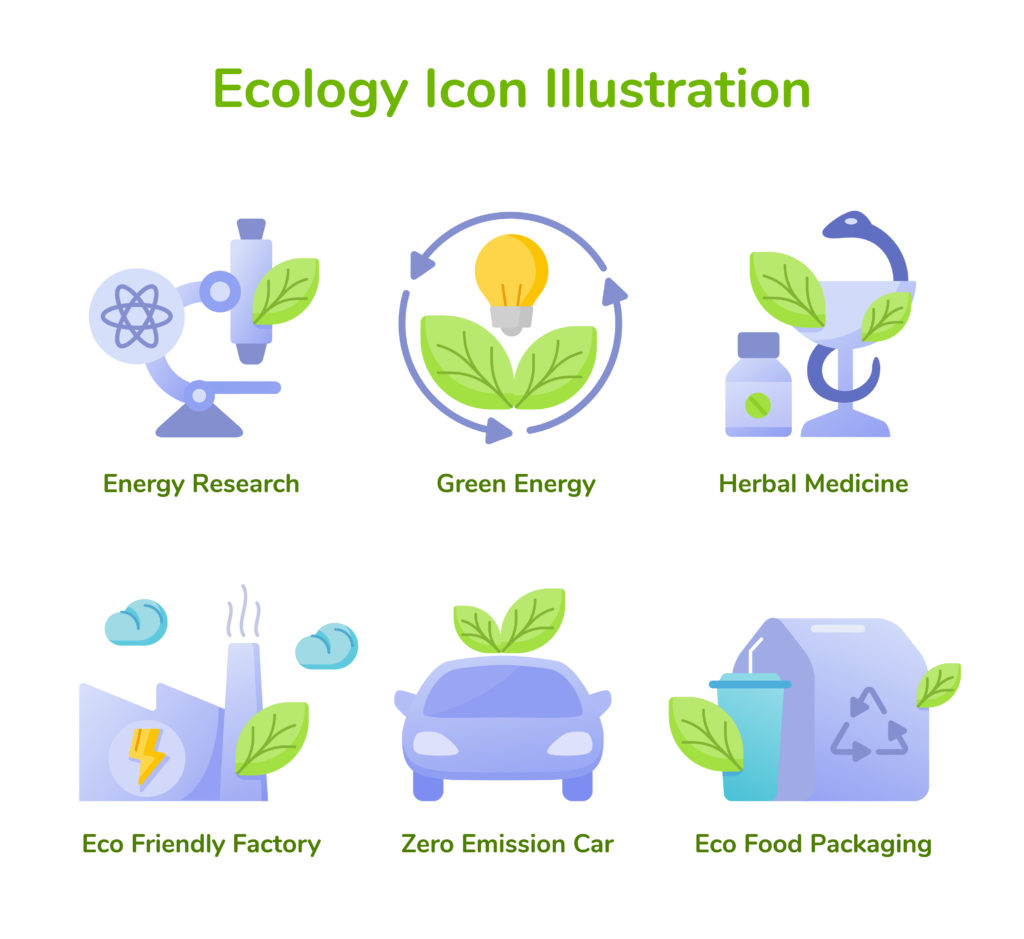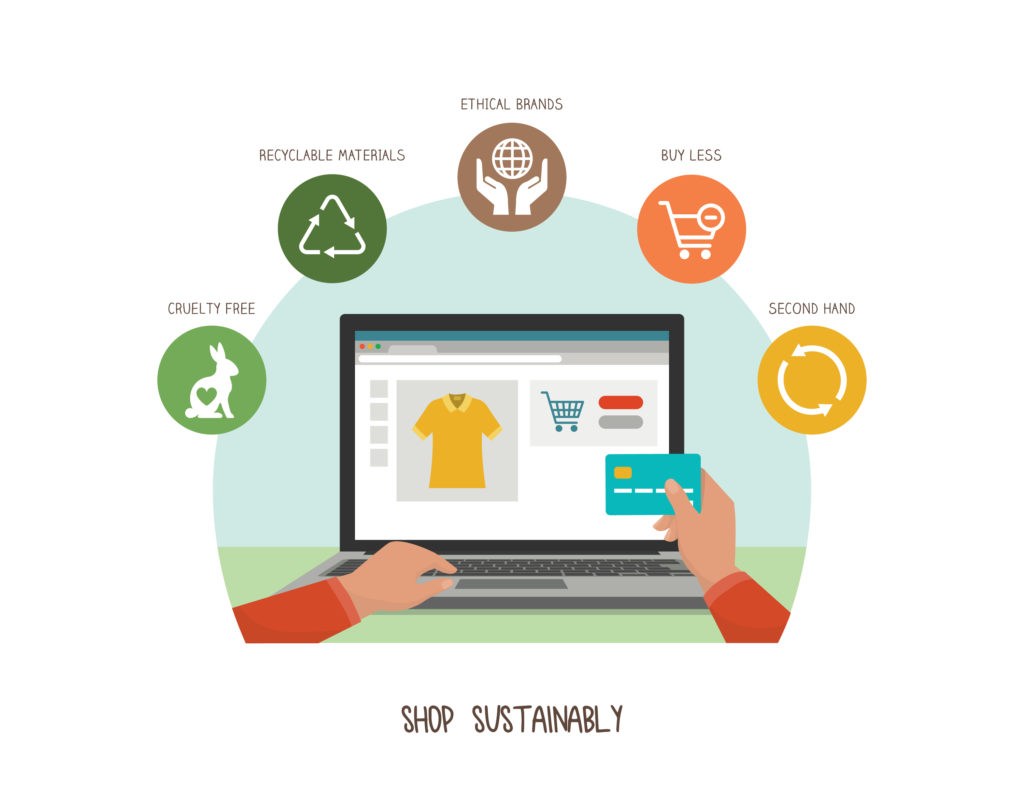LogiCommerce is trusted by global enterprise brands and wholesalers, across industries
Sustainability is a concept that is increasingly gaining momentum in eCommerce. Most organizations are trying to reduce the environmental impact they cause to become more sustainable brands, improve their image in the eyes of consumers and other organizations, and create environmental awareness.
However, the real reason why many brands have decided to incorporate sustainability into their business model is the new habits that their consumers and new potential customers are showing. They increasingly demand sustainability and generally, people tend to choose brands that minimize environmental impact and offer sustainable products. In addition, eCommerce is expected to commit to more sustainable production, manufacturing, management, and distribution processes, where the aim is to reduce CO2 emissions for each produced product.
With the increase of environmental awareness, the term "greenwashing" appeared and is referring to those companies that pretend to sell a sustainable business model when in reality they are not. Many organizations present their products as “environmentally friendly”, but at the same time, they are carrying out bad practices on them. In many occasions, sustainability is used to impact the consumer with a more positive image and thus increase its reputation, but once the customer is aware of the deception, an opposite effect is achieved. It’s a concept that should definitely be avoided if you really wish to achieve a positive impact on the consumer.

Local and proximity products. Implementing this type of change will be favorable for the business and also for the environment since it reduces trips by minimizing the use of transport, and therefore fuel and polluting emissions. The purchase of local products favors the relationship between producers and consumers. In addition, the economy of the region is also positively affected since jobs are increased, local companies are strengthened, and wealth is produced in the immediate environment.
Sustainable packaging. Packaging is undoubtedly a differentiating element in an organization, as it is present in all or most of the products, we buy both online and offline. In order to reduce the environmental impact and footprint, packaging made of plastic should be avoided. The solution is eco-friendly packaging that can be made of recycled, reusable and/or composable materials. Many companies are based on the 5R's: reuse, replace, renew, reduce and recycle, to contribute to a circular economy and increase social and environmental responsibility.

More sustainable shipping. Having an eCommerce means that the orders will require some sort of shipping. Some of the solutions that could be incorporated to encourage sustainable shipping and to minimize the CO2 impact is grouping several orders according to the destination, offering Pick-up in store or at Pick-up points of convenience. Sometimes, this can mean slower delivery processes. We, therefore, recommend you to be transparent with your customers and to communicate openly why deliveries take longer than usual and to inform them about the status of their delivery at all stages. Customers will usually show full understanding and even support you.
Reduce the number of returns. In eCommerce there usually exist higher rates of returns which results in a double environmental impact, i.e., the 'delivery' from the warehouse to the customer and afterwards the return of the delivery from the customer to the warehouse. To achieve more sustainable refunds, the eCommerce could offer for example the possibility of returning the order in a physical store or at selected return points. That way brands can collect several returns at the same time, reduce CO2 emissions and, thus, reduce their environmental impact.
Another solution to reduce the number of returns would be to provide detailed product information so that customers have a better idea of what they will receive and only order products that truly fit their requirements.
Create awareness about sustainability. As a brand, creating awareness about sustainability is a unique opportunity to generate educational content and improve the image of the brand. This can be achieved through blog posts that refer to sustainability, promoting sustainable strategies through social networks, participating in sustainability initiatives, etc. In this way, we get this concept to be much more present in the daily life of the consumers and, therefore, we are creating awareness on the issue, so that they increase their knowledge and are aware of the importance of choosing sustainable products and brands over those that are not.
Choice of partners. To follow a sustainable business model, your suppliers, distributors, production chain, and other partners must work in line with your values and sustainability criteria. Take into account those partners that obtain demonstrable environmental certifications, offer products with sustainable certificates, reduce the carbon footprint from transportation, and guarantee the protection of the environment. In addition, this will help you to create a network of support among businesses to enhance business sustainability. On the other hand, it is also an opportunity to collaborate with external entities such as ONGs that carry out projects with similar values as your eCommerce.
Product manufacturing. Making your eCommerce products in an eco-friendly environment is one of the main goals that businesses should pursue in their commitment to sustainability. It is important to avoid overproduction, anticipate the needs of consumers, and find solutions that offer sustainable consumption and production methods to improve customer relations and brand image. A good way to extend the usability of products is to offer them based on materials that pursue the “4Rs”: Recycle, Reduce, Reuse and Recover. This means for example selling products made from renewable resources or biodegradable materials, drastically reducing the use of plastics and/or informing the consumers of the materials used, production process etc. on the labels of the product. Applying these different measures helps to lower the environmental impact, pollution and reduce the generation of waste.

Circular economy approach. The goal is to reduce waste to a minimum, consume fewer natural resources, reuse and recycle materials, and extend the life cycle of products to create added value. This model breaks away from the traditional linear economic model, which works on the "use and throw away" concept that involves extracting raw materials, using large quantities of unsustainable materials, etc.
With the rapid growth of eCommerce over the last years, sustainability and environmental responsibility were negatively affected since online orders meant an increase in deliveries and, thus, an increase in CO2 emissions. In addition, this problem is surrounded by other factors such as the increase in returns, overproduction, non-eco-friendly packaging, etc.
In summary, responsible and sustainable consumption is a reality and a great opportunity to positively influence the image and reputation of your business, as well as its success. Communicating with total transparency the practices of your eCommerce in regards to production processes, packaging, shipping, logistics, advertising campaigns, among other things, is a real chance to demonstrate your brand philosophy and good practices to those customers that are more demanding than ever.

